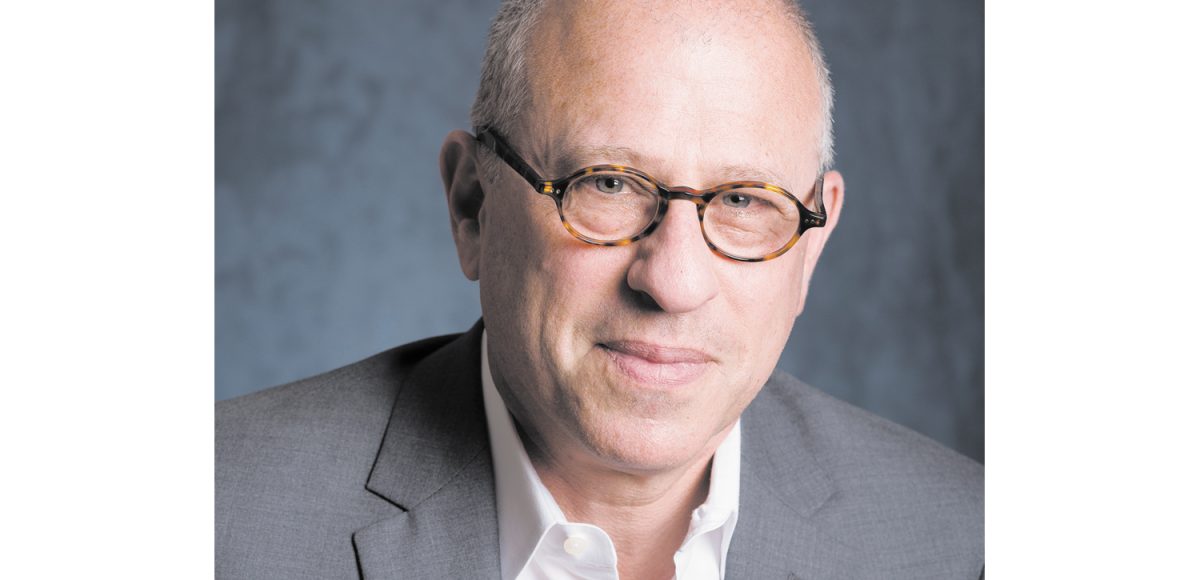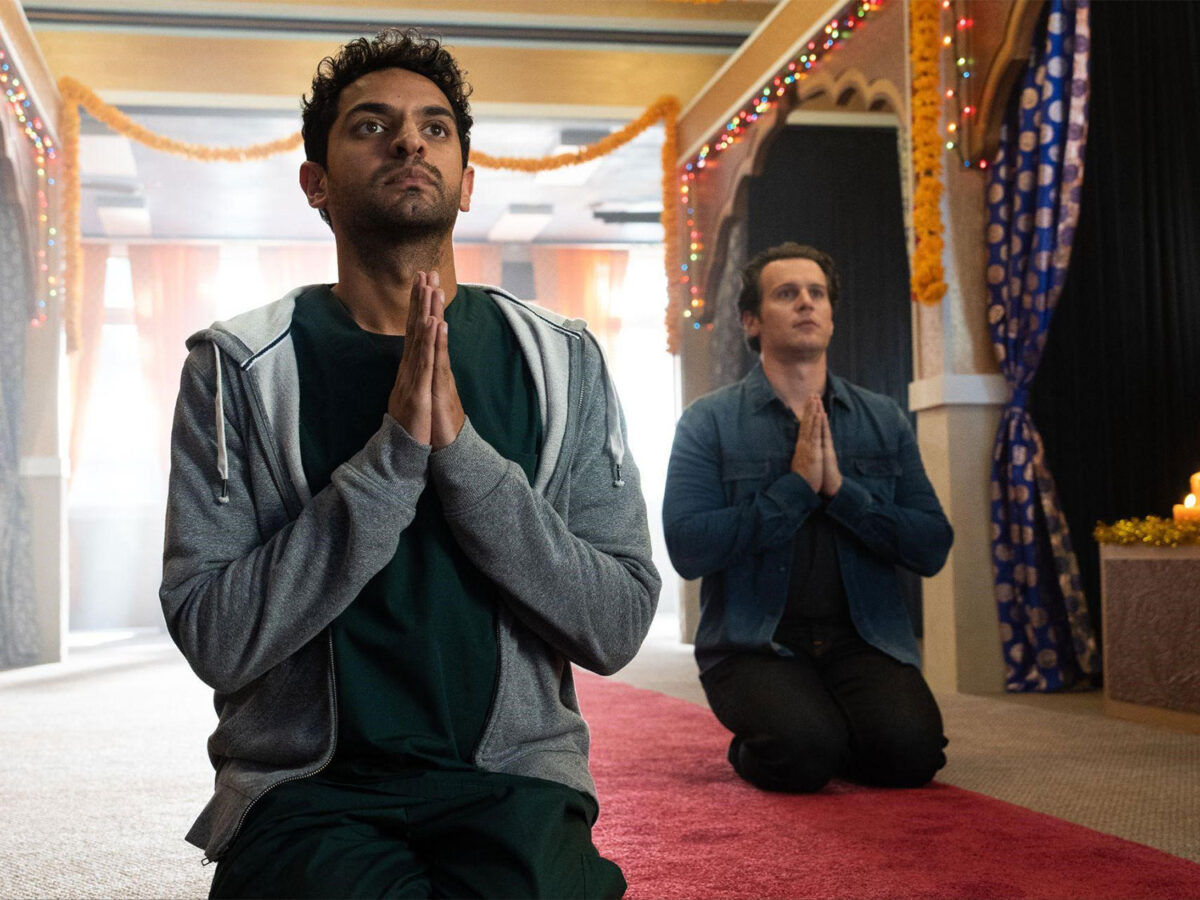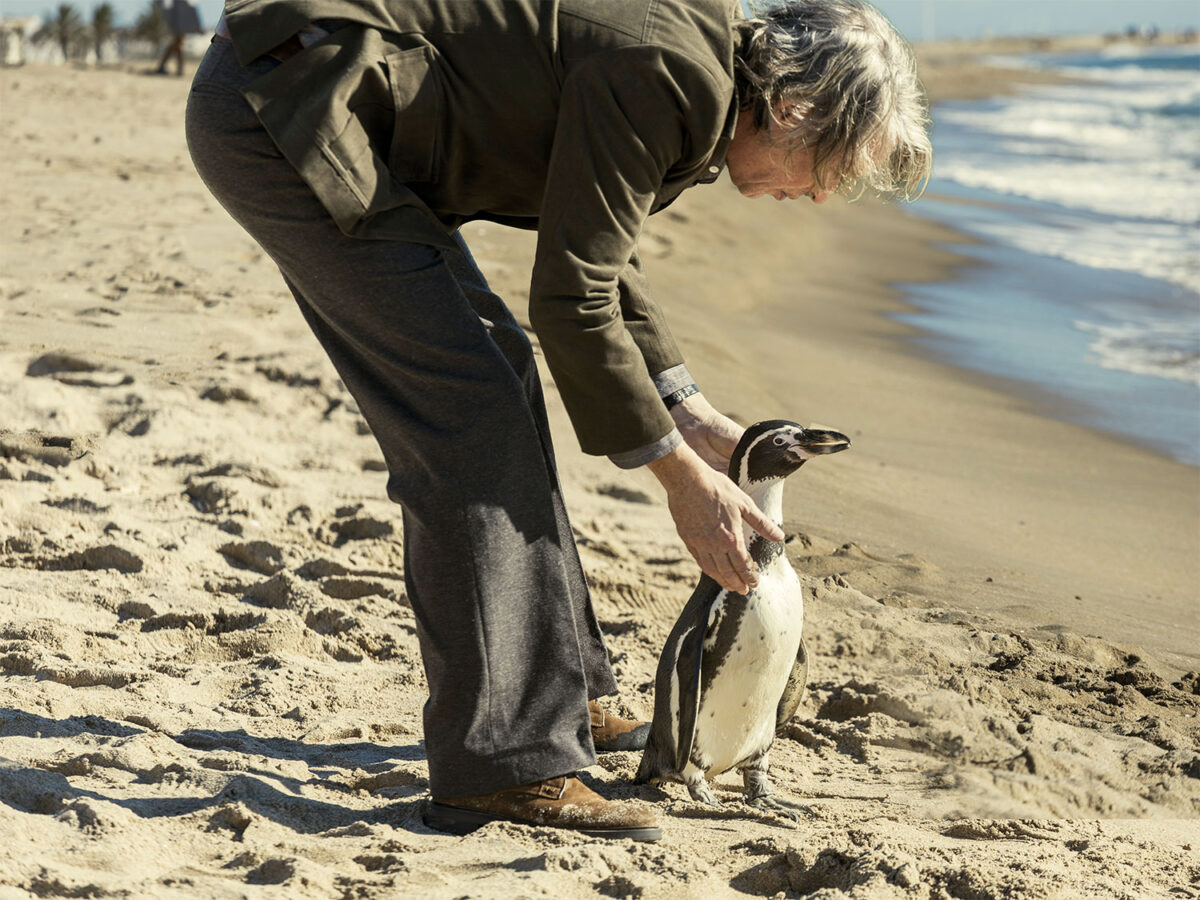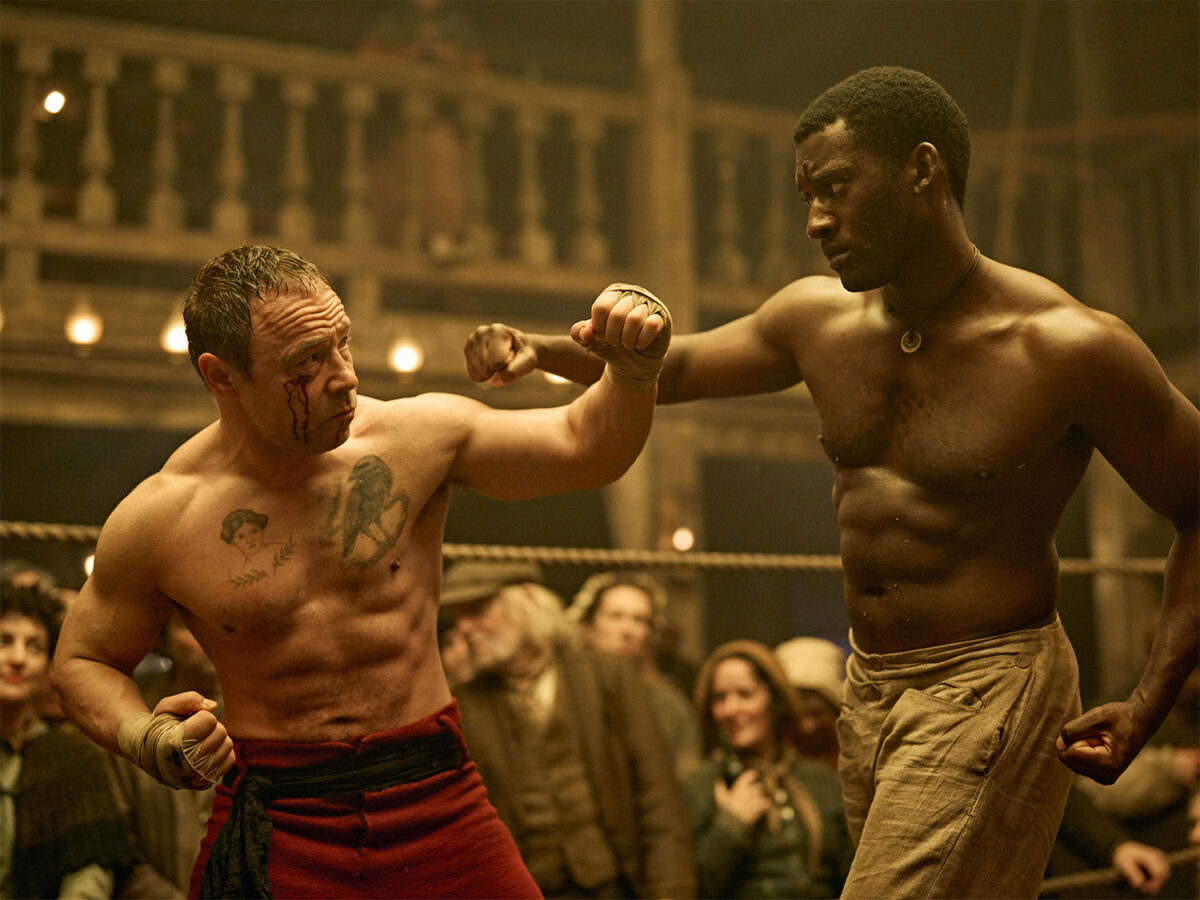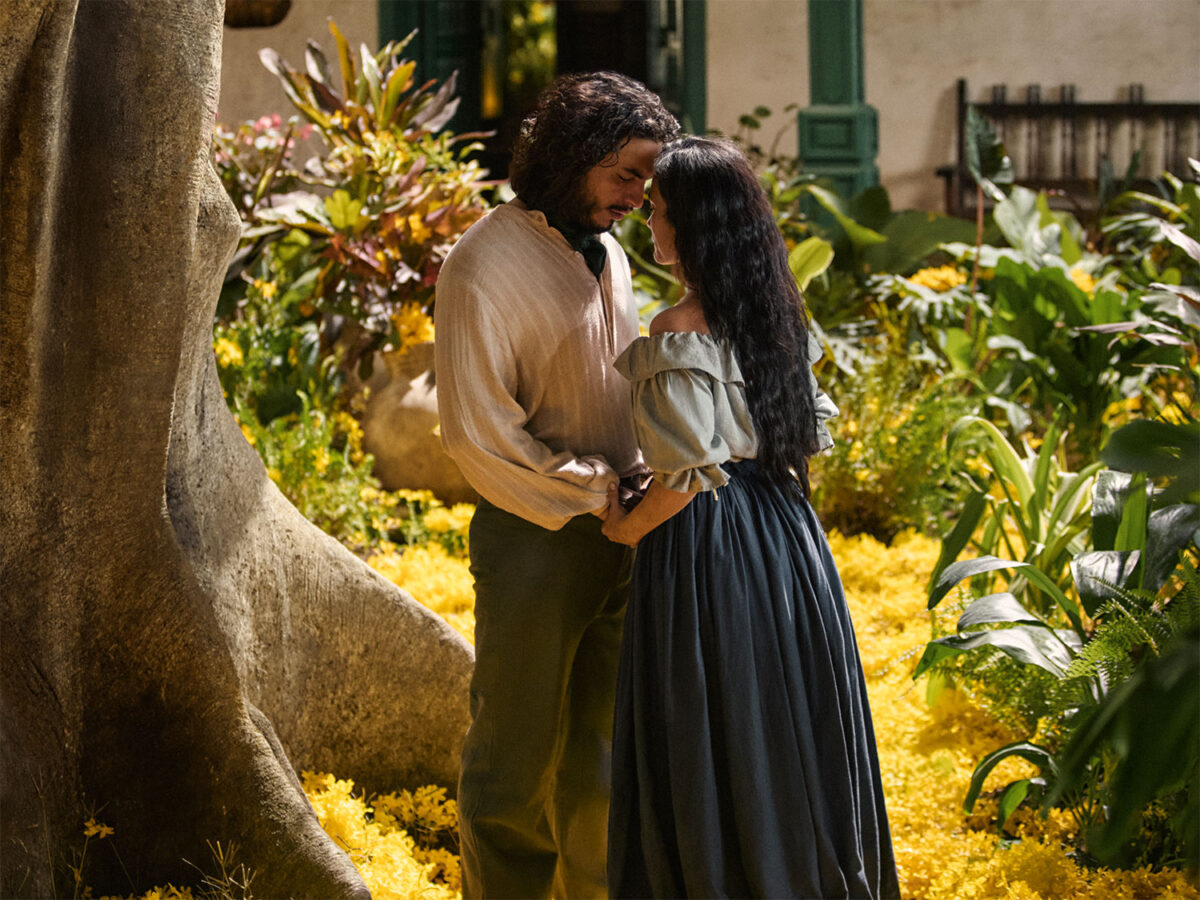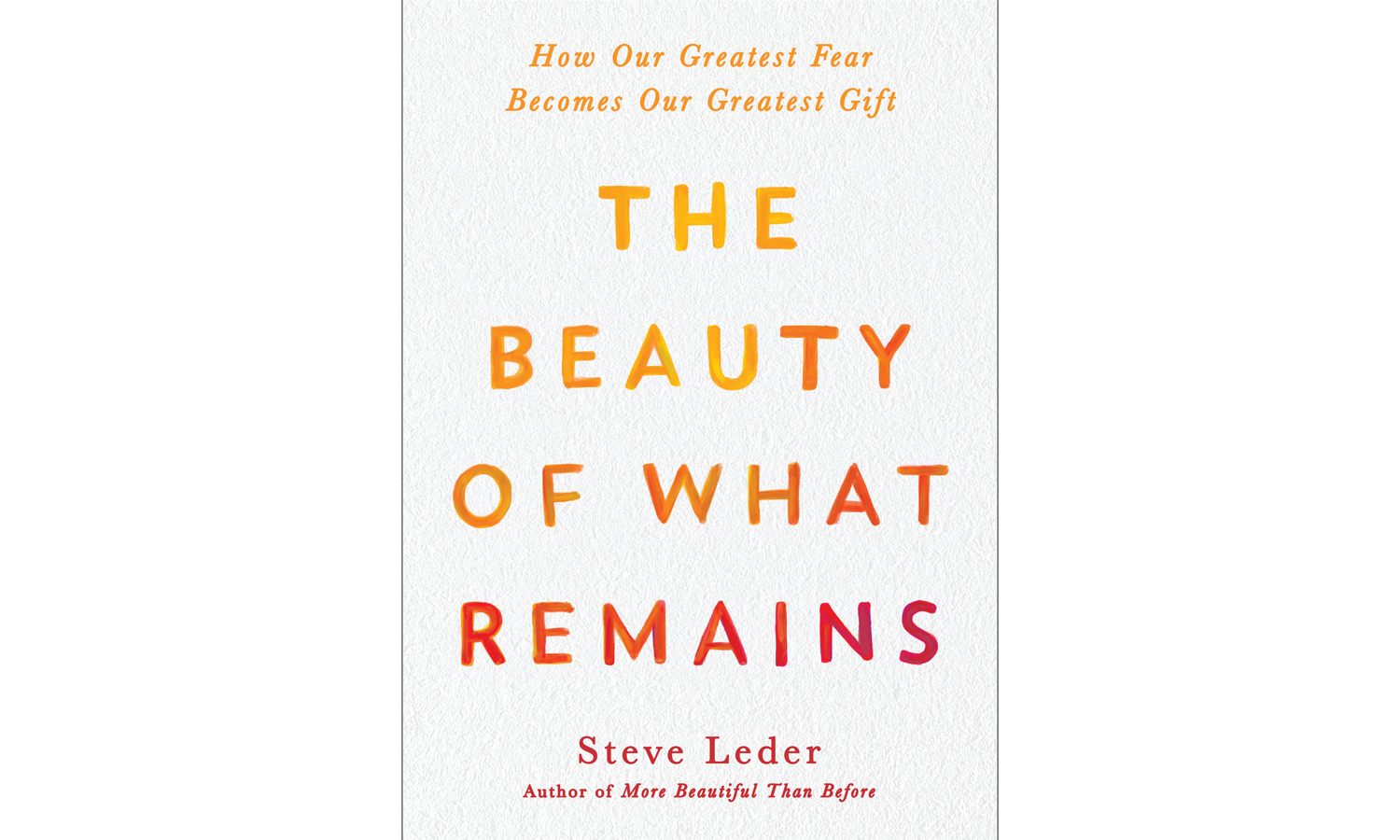 Part 2 of 2
Part 2 of 2
Bestselling author, member of our community and the Senior Rabbi of Wilshire Boulevard Temple, Steve Leder’s new book, “The Beauty of What Remains, How Our Greatest Fear Becomes Our Greatest Gift,” was recently published by Penguin Random House.
Written exquisitely, this book is ultimately not about death, but about leading a more beautiful life because of it. The timing of the book’s release is especially relevant today, as there is no better event than a pandemic to prove to each of us that life is temporary and precious.
“Death is the great teacher of life,” says Rabbi Leder. The pandemic has forced us to change, to slow down, to eliminate so much, and in so doing, it has revealed the beauty that was there all along. It inspires us to live a more meaningful life, filled with love, devoid of excess and replete with essentials.
In this new book, which became a bestseller on its first day, Rabbi Leder takes us on parallel journeys, one that he experienced as a rabbi and one as a son. After 30 years of guiding thousands of congregants through loss and grief, he is forced to grapple with and confront his own feelings with the passing of his father. Rabbi Leder’s message could not be more welcome, healing and inspiring.
As a member of Wilshire Boulevard Temple for the past 25 years, I have witnessed Rabbi Leder’s profound teachings and experienced his immeasurable compassion. This latest book is one of his “greatest gifts” as he shares his wisdom and his life experiences while guiding us to live a beautiful and meaningful life. I was deeply and positively affected by it.
Rabbi Leder graciously granted the Courier the first print interview about the book. This is the second of two parts.
What is “God time?”
God time is my way of saying that certain things cannot be rushed nor can they be slowed down. Grief is like that. There is no wrong way to grieve. And grief is a nonlinear process. Anyone who thinks the shortest distance between two points is a straight line doesn’t understand grief. You can’t rush healing. You have to allow the experience to unfold in its own way and at its own pace. Now, there are things you can do during that experience to help garner insights. I hope reading the book will be helpful to people who are grieving, for example. But when it comes to being ready to move on, whatever that means, you’re on God’s time. You’re not in your own dimension of time.
You speak beautifully about memory; memory is light. This touched my heart. If we remember, nothing can ever take our sunshine away.
Only human beings were granted a gift, the ability to summon the past willfully, into the present, and carry it with us into the future. That’s not like a squirrel remembering where the acorns are, which is instinct. You can literally decide I’m going to stop for a moment and think about my mom right now, and you can do it. And that’s an extraordinary treasure given only to human beings.
As you know, my father had Alzheimer’s and so I saw it up close. When we no longer have memory, in a sense, we’re no longer ourselves. Memory is the most gracious and beautiful gift bestowed upon human beings by God. Without it, we’re nothing more than an animal.
The other beautiful thing about memory is that it enables us to round the sharp edges and leave behind what we choose to forget. This is where the book title comes from. We can choose to embrace the beauty of what remains, not just the loss.
In the book, you share a magnificent story about a Stradivarius violin, written as if the violin was playing while the words of the story unfold. The message is about caring for those who have died, but who have not left us.
It was such a profound moment when I learned that even though it’s an inanimate object, if you don’t play a violin, it dies. The finish and the tone are ruined if it is ignored and not played. It takes us back to this earlier point. Judaism is constructed in a way that requires us to remember the loss of a loved one, at least five times in the year. And of course, there are all the others, the birthdays, the anniversaries, and the ordinary moments during the ordinary days. I often advise people who are grieving that they need to create a daily ritual. I don’t care what it is. Look at a picture, read a poem, light a candle to remember your loved one, but create a ritual as a vessel to contain it all. The willful act of memory is healing.
You advise us to live our lives as a good ancestor we will never know. What do you mean by this?
We don’t think of ourselves as ancestors, but we are, just not yet. And one of the ways to think about leading a worthy life, a noble life, a meaningful life, a beautiful life is to consciously live as a good ancestor. The Seventh Generation Principle, the law of the great Iroquois Nation, mandated that when the elders deliberated, they had to consider the effect their decision would have on the seventh generation to follow. In other words, live as a good ancestor. That’s what it takes to be a good human being. To think beyond yourself.
You talk in the book about a block of stone, and we turn that stone into a statue of our lives. Please elaborate.
I think during the pandemic, it’s a particularly helpful way of thinking. There are many beautiful things hiding in plain sight, but we have to stop in order to notice and appreciate them. If you think about Shabbat for a minute, it’s mostly a list of rules about what we can’t do, not what we have to do, but what we may not do. And that creates the negative space for beautiful things to flourish. For example, during the pandemic, look at what happens when we stop driving all over town on the freeways. When we stop waiting in line to buy and buy some more, when we stop an aggressive social life, when we stop being away from our children and our spouses, think of all the beautiful things that emerge. It’s like a block of marble. You chip away until this beautiful sculpture remains. The sculpture was always in there. The beauty was always in there, but it took removing things chip by chip for it to be revealed. That’s another reason why I called the book, “The Beauty of What Remains.” I am not for a moment dismissing the terrible pain caused by the pandemic. That being said, the cessation of our frenetic lives, where the centrifuge of life was just spinning us apart, to this hunkered down, home centered, tiny handful of people who really matter in our life right now, is very beautiful.
You say, “It is a simple fact that we do not have forever that makes our love for each other so profound.” You use the analogy of a flower.
That’s what Wallace Stevens said, “Death is the mother of beauty. Only the perishable can be beautiful, which is why we are unmoved by artificial flowers.”
You appreciate a flower when it’s in full bloom, in beautiful colors.
Because, you know, it’s temporary. It’s a rare moment when you smell that rose. And you also know that its death is required in order for life to go on. Nature is replete with metaphors for the importance and value of death. Nothing would live without it. The lifecycle of a forest is dependent upon death.
In the prologue you explain that this book is your apology. You wanted to set the record straight for the way in which your most popular sermon given the year before your father died, a sermon on death, was shy of the real truth. This revelation was a result of you experiencing death, upfront, at the very core of your being, with your father’s passing. What is that deeper truth you learned?
Before my father died I had already been a rabbi helping people through death and loss and pain for 30 years. I thought I had been doing a pretty good job. I would have given myself maybe an A minus, having officiated more than 1,000 funerals. But when my father died, I realized that what I was saying wasn’t the deepest truth. First of all, I rethought my understanding of memory. I have a much better, I think, understanding of the duality of memory. While it’s such a gift, it’s also a burden. Memory can be beautiful and it can hurt. There’s a duality to memory. And that’s the deepest truth.
The other thing that I talk about in the book is I used to say to people in the early days of their grief, “It won’t always hurt so much.” And I learned that’s false. The truth is it won’t always hurt so often. But when it hurts, it hurts every bit as much. I learned that grief is like waves. The waves do grow further apart and they do diminish. But every once in a while, when your back is turned, you get hit by a rogue wave. And it turns you upside down, gasping for air, at the loss. That’s the truth of grief. It is not that it doesn’t always hurt so much. It just doesn’t always hurt so often. Because no matter how long it has been, when loss hurts, it still really hurts. These are just a couple of the things that my father’s death forced me to rethink and rearticulate for the people I am caring for.
Your honest, heartfelt admission after experiencing your father’s passing serves as a guiding light and an inspiration for all of us about life.
My father’s death has made me a better rabbi. It’s made me a better man. It’s made me a better father, made me a better husband. It’s made me a more humane human being. Death and loss can ennoble all of us to live more meaningful lives.
We have all gone through one of the most trying years, and now we have turned the page to a new year. Please provide us with some words of reflection, optimism, and encouragement for 2021.
There are a number of things I would say. I learned one from a friend of mine who had three different cancers; the third cancer was lethal. When I asked, what did the first two cancers teach you?’ He said, Time flies, even when you’re not having fun.’
The pandemic is going to end. This experience has been scarring and formative for many of us, and ultimately, it’s going to end. Sometimes after certain surgeries, when people are depressed, I’m able to say to them, Everyone gets better from this. You’re going to get better.’ So, as simple as it sounds, I think remembering that time flies, even when you’re not having fun, and that we’re going to get through it, is helpful.
I’m grateful for the year that has passed as it has really tested my capacity for gratitude. It’s hard to be depressed if you’re grateful. But I think this has been a year-long lesson in gratitude for the simplest of things. Look back on the past nine months. Are you not amazed at how you have adapted and found ways to flourish and live and love? Be proud of what we have been through together and apart. Be proud of what you have done, and how you have done it. Know that going forward, no matter what life puts in front of you, you will be a resilient person who will find beauty.
It’s true that anyone reading the Beverly Hills Courier newspaper pretty much is on the lucky side of the pandemic. They have a driveway that the paper could land on. Yes, from a Maslow’s hierarchy of needs perspective, we are the lucky ones. But we’ve also done an amazing job. Amazing. Every one of us has gotten to this point through this pandemic. And there is no reason to believe that we are not capable of doing the same and then some in the year to come.
There is a point I made in the previous book, “More Beautiful Than Before” about going through difficult times. We’ve all been through hell these past nine months. And when thinking about the new year, the important thing about going through hell is not to come out of it empty handed. Ask yourself, “What am I going to carry with me from this experience? What am I coming out of this hell with that I’m going to make positive use of for the rest of my life?”
Let’s think about this new year as the opportunity not to come out of hell empty handed. Loss hurts, but there’s a lot of beauty that remains, and you can hold that for the rest of your life.
This is what growing older is. It’s loss after loss, and then a gain, and then a loss. Life is ultimately about holding on and appreciating the beauty of what remains. It really is.
After graduating Northwestern University, and studying at Trinity College, Oxford University, Rabbi Leder received a Master’s Degree in Hebrew Letters and Rabbinical Ordination from Hebrew Union College. He is a regular contributor and guest on “The Today Show” and writes often for TIME, Foxnews.com, and Maria Shriver’s Sunday Paper. His published essays have appeared in Town and Country, the Los Angeles Times, USA Today and the Los Angeles Jewish Journal, where his Torah commentaries were read weekly by over 50,000 people.
The New York Times called Rabbi Leder’s first book, “The Extraordinary Nature of Ordinary Things,” “uplifting.” His second book, “More Money Than God: Living a Rich Life Without Losing Your Soul,” received high honors as did his third book, “More Beautiful Than Before; How Suffering Transforms Us,” which reached #4 on Amazon’s overall best sellers list in its first week. Newsweek Magazine has twice named Rabbi Leder one of the ten most influential rabbis in America.



